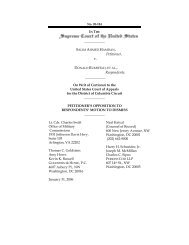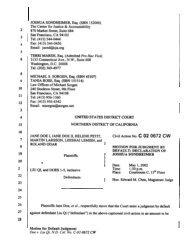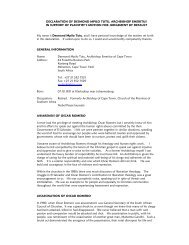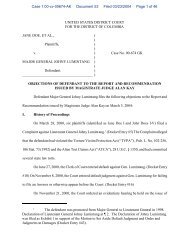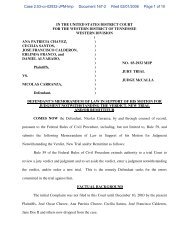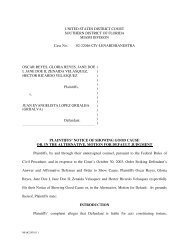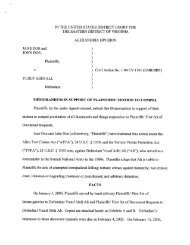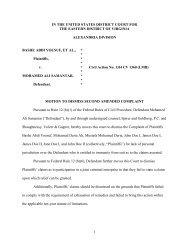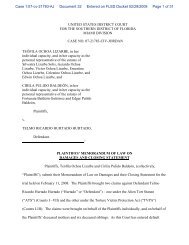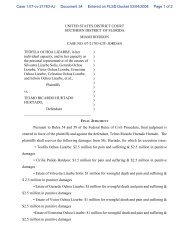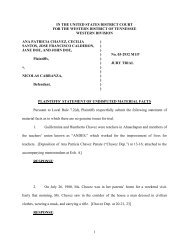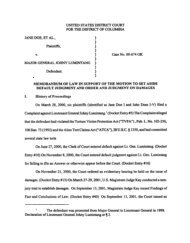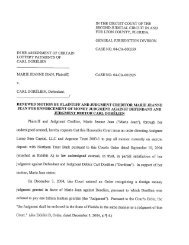SOSA v. ALVAREZ-MACHAIN - Legal Information Institute
SOSA v. ALVAREZ-MACHAIN - Legal Information Institute
SOSA v. ALVAREZ-MACHAIN - Legal Information Institute
Create successful ePaper yourself
Turn your PDF publications into a flip-book with our unique Google optimized e-Paper software.
Cite as: 542 U. S. ____ (2004) 13Opinion of the Courtforeign country because some planning or negligence atdomestic headquarters was their cause. 5 And that, inturn, would have resulted in applying foreign law of theplace of injury, in accordance with the choice-of-law rule ofthe headquarters jurisdiction.Nor, as a practical matter, can it be said that the headquartersdoctrine has outgrown its tension with the exception.It is true that the traditional approach to choice ofsubstantive tort law has lost favor, Simson, The Choice-of-Law Revolution in the United States: Notes on RereadingVon Mehren, 36 Cornell Int’l L. J. 125, 125 (2003) (“Thetraditional methodology of place of wrong . . . has recededin importance, and new approaches and concepts such asgovernmental interest analysis, most significant relationship,and better rule of law have taken center stage” (footnotesomitted)). 6 But a good many States still employessentially the same choice of law analysis in tort casesthat the First Restatement exemplified. Symeonides,——————5The application of foreign law might nonetheless have been avoidedin headquarters cases if courts had been instructed to apply the substantivetort law of the State where the federal act or omission occurred,regardless of where the ultimate harm transpired. But inRichards v. United States, 369 U. S. 1 (1962), we held that the Actrequires “the whole law (including choice-of-law rules) . . . of the Statewhere the [allegedly tortious federal] act or omission occurred,” id., at3, 11. Given the dominant American choice-of-law approach at the timethe Act was passed, that would have resulted in the application offoreign law in virtually any case where the plaintiff suffered injuryoverseas.6See also Rydstrom, Modern Status of Rule that Substantive Rightsof Parties to a Tort Action are Governed by the Law of the Place of theWrong, 29 A. L. R. 3d 603, *2 (1970) (“Many courts are now abandoningthe orthodox rule that the substantive rights of the parties are governedby the law of the place of the wrong”). We express no opinion onthe relative merits of the various approaches to choice questions; ourdiscussion of the subject is intended only to indicate how, as a positivematter, transjurisdictional cases are likely to be treated today.




